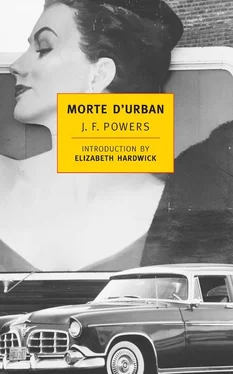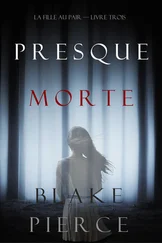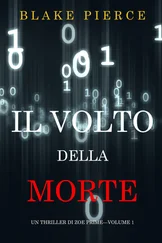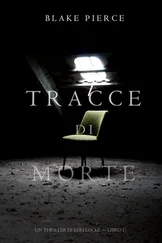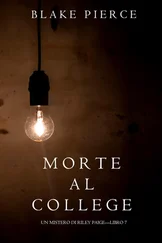“Fine, thank you, Father,” said Brother Henry.
“Good, good,” said Father Urban, looking through his mail. He was about to leave when he spotted an envelope in the outgoing basket, an envelope addressed to him. “I might as well take this,” he said. He removed the envelope from the basket.
“It was my understanding,” Brother Henry was saying, “that Father Provincial wanted you to get that in St Paul.” Brother Henry had addressed these words more to his typewriter than to Father Urban, and now, with his fingers trembling on the keys, he seemed to be waiting for Father Urban to return the envelope.
“I wouldn’t worry about it, Brother, if I were you,” said Father Urban, coldly smiling. He was thinking how much more he used to enjoy his days in Chicago, before Father Boniface came to power. Respect for Father Urban was still there, but something negative had been added, or was showing itself. In Brother Henry’s case, it was probably only envy — the ground crewman’s envy for the man who actually did the flying — and what might be called puritanism. Father Urban had tried to interest Brother Henry in pipe-smoking, saying that it would help his digestion. “Take it easy, Brother,” he said now, and went and stuck his head into Father Boniface’s office.
The Provincial, a lean, pale, damp-looking Pole with a hairline winding up and around like the endless seam on a baseball, sat at his desk cleaning his fingernails with a letter opener. On the wall behind him, just as in their old quarters, hung a crucifix and part of the propeller from the airplane in which his brother, a chaplain in the First War, had perished. Father Boniface had been a chaplain himself in the Second War. “How’s it going, Father?” he asked, and went right on with his nails.
“I can’t complain.”
“Good.”
“I’ll be seeing you,” said Father Urban, withdrawing his head. He wouldn’t be seeing Father Boniface, though, if he could help it, until he stuck his head into the office again, after his next trip. He reported not to the man but to the authority vested in him, but this, too, was hard for Father Urban. He felt that the authority might have been his if the members of the Order had only known that by electing him Provincial they would not be losing him in the field. He would have carried on as always, as a fighting general, you might say. Unfortunately, there was no precedent for such an arrangement, and there hadn’t been a discreet way to suggest it. At least none had occurred to Father Urban at the time. Before the next election rolled around, however, he meant to go into the whole matter with Father August, his old confessor, who, though rather inclined to take everything with a grain of salt, including the future of the Order, was popular with the younger element at the Novitiate and wasn’t partial to the present administration. Father August, if he so desired, could talk up the idea in a quiet way. It would be up to the others then.
On his way back to the stockroom, Father Urban met Brother Henry in the corridor, smiled, and said, “This way, you see, you save a stamp.”
“Yes, Father.”
In the stockroom, Brother Lawrence, who had found his vocation late in life, got up from his chair by the window and came to the counter, asking, “Where you off to this time, Father?” He had been a brakeman in the world and took a lively interest in Father Urban’s travels.
“St Paul.”
They discussed the merits of the railroads running between Chicago and the Twin Cities, and the possibility of a merger between two of them that Brother Lawrence had heard of, and then Father Urban checked off the pamphlet titles he’d need on his next trip.
“You don’t take this any more, Father.” Brother Lawrence held up a copy of a pamphlet written years ago.
Father Urban knew that Brother Lawrence was trying to help Jack — who had figured in his vocation, the two of them having enjoyed many quiet talks between Galesburg and Quincy, Brother Lawrence’s old run on the C.B. & Q. — but this was asking too much. Even elderly pastors pathologically sympathetic to Jack’s message (temperance) complained about the outdated language, words like “flapper” and “sheik” and “applesauce” (as an oath), and about the art work on the cover, where a coal-burning train and a touring car were engaged in what was obviously going to be a photo finish at the crossing. The young people in the touring car, one of whom sat on the tonneau and kicked up a pretty leg, held champagne glasses out of which bubbled the words of the title, “Danger Ahead!” Father Urban shook his head. “I wish he’d revise.”
“This just came in,” said Brother Lawrence, having done what he could for Jack. He reached under the counter and came up with a pamphlet on mercy killing by Father Clem, a nom de plume in general use in the Order. In this instance, the author was Father Boniface himself. For many years, “Help, Murder!” had disintegrated in vestibules and then it had entirely disappeared, but now here it was again. Father Urban wasn’t fooled by the flashy new cover, nor, he thought, would the big dealers, the priests and nuns who could make or break a pamphlet, be fooled by it. Brother Lawrence didn’t seem to realize that this was the second time around for “Help.”
“Is it moving at all, Brother?”
“It just came in, Father.”
Father Urban nodded. Loyal, he thought — all of ’em loyal to Father Boniface. “I’ll think about it,” he said, going back to the chair by the window. After removing Brother Lawrence’s reading matter — a paperback by Erle Stanley Gardner — he sat down to his mail. He re-read Billy’s postcard (a view of Faneuil Hall, Boston): “N.E. States on time. Merchants to N.Y. tomorrow. Back on Friday, Century. Lunch with you? Just — Billy.” Father Urban’s cards to Billy came to much the same thing, even to the self-effacing “Just,” which Billy had appropriated. Father Urban then discarded the second-class stuff unopened and got down to the usual requests for his services in the future, several of them from pastors who’d had him before. Remembering the food and accommodations at one place, inexcusable for such a well-to-do parish, he resolved what would have been a conflict of dates. Then he opened the envelope lifted from Brother Henry’s basket, and groaned, wadded up the letter, and groaned again.
Brother Lawrence, at the counter, turned and stared — as if to see whether Father Urban was all right, or was having a heart attack.
Father Urban gave him a discouraging look. Then he uncrumpled the letter, laid it on his knee, and ironed it with the palm of his hand. He had opened the envelope, expecting to read that he was asked to pray for this or that, for somebody dead or dying, or was asked to call on some friend of the Order in the Twin Cities, for such was the stuff of Father Boniface’s correspondence with Father Urban. But here was a letter saying that Father Urban’s engagement in St Paul would be his last on the road, that “someone” would take his itinerary from there. Here was a letter ordering him to report to the newest white elephant, the new foundation, as it was called in the letter, near Duesterhaus, Minnesota. No, it didn’t make sense, even by Clementine standards, which had been hard enough to fathom before but which had now become positively inscrutable, and why had the matter been handled in this manner, by letter? Because Father Boniface was afraid of him! Or at least was afraid of a scene. Go and see him then! Have it out! And be asked how he came into possession of the letter? Or not be asked, and have his little transgression hanging over him, detracting from whatever he might say?
Father Urban restored the letter to its envelope, and put the envelope in his pocket. As he saw it, the letter had been coming for a long time, from the moment Father Boniface came to power. It had been on the way for two years, and now, finally, it had arrived. How did a man like Father Boniface ever get elected? Simple. Nature might abhor a vacuum, but the Order of St Clement didn’t. It was as simple as that.
Читать дальше
